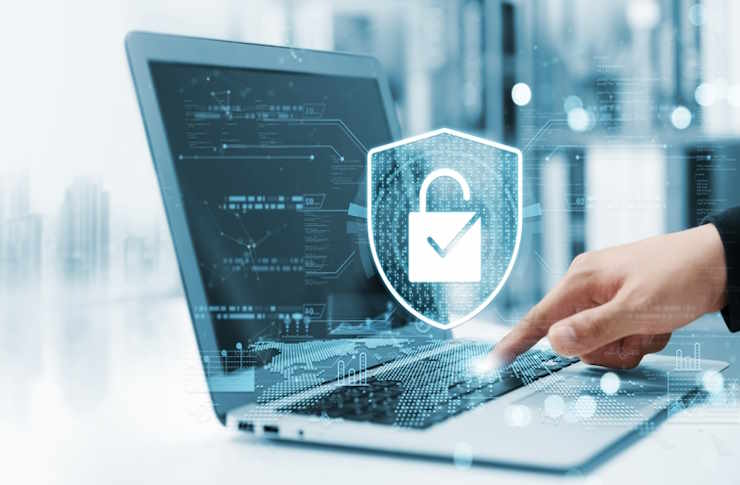Essential Cyber Security Apps for Personal and Professional Use
In today’s increasingly digital world, protecting personal and professional information is more important than ever. Security apps provide a vital layer of defense against threats like malware, phishing, and data breaches. This article explores essential security apps that can help safeguard your devices and information, offering features like antivirus protection, password management, secure browsing, and mobile threat detection.

The Role of Antivirus and Malware Protection Apps
Antivirus and malware protection apps are the cornerstone of cyber security. They shield devices from a range of threats, including viruses, ransomware, and spyware. For personal use, these apps provide real-time protection and regular scans to identify and neutralize malicious software. Popular options include Norton Antivirus, Bitdefender, and McAfee.
In professional settings, advanced solutions like Kaspersky Endpoint Security and Symantec Endpoint Protection offer centralized management, ensuring an organization’s devices are consistently protected. These apps often include features like firewall protection, intrusion prevention, and vulnerability assessment. Investing in reliable antivirus and malware protection ensures your devices remain secure, preventing unauthorized access to sensitive data.
Enhancing Security with Password Managers
Password managers are critical tools in maintaining online security. With cybercriminals increasingly targeting weak or reused passwords, using a password manager ensures all your credentials are unique and complex. Leading options such as LastPass, Dashlane, and 1Password provide encrypted storage for passwords, making them accessible only to the user.
For businesses, enterprise-grade password managers like Keeper Security offer advanced features such as password audits, secure sharing, and integration with multi-factor authentication. These tools reduce the risk of breaches caused by human error, which is a common vulnerability in cyber security.
Protecting Privacy with VPN Apps
Virtual Private Networks (VPNs) are essential for safeguarding online privacy. VPN apps encrypt internet traffic, masking your IP address and preventing third parties from monitoring your activity. This is especially useful for professionals working remotely, ensuring sensitive information remains secure on public Wi-Fi networks.
Top VPN providers like ExpressVPN, NordVPN, and CyberGhost offer robust encryption, high-speed servers, and features like split tunneling for better control. For businesses, solutions such as Perimeter 81 provide scalable, cloud-based VPNs that enhance network security. Using a VPN is a simple yet effective way to protect personal and professional data from cyber threats.
Mobile Security Apps for Smartphones and Tablets
Smartphones and tablets are increasingly targeted by hackers due to their widespread use. Mobile security apps provide comprehensive protection against malware, phishing, and unauthorized access. Apps like Avast Mobile Security, Lookout, and Kaspersky Mobile Security are popular for personal use.
In professional environments, mobile device management (MDM) solutions such as Microsoft Intune ensure corporate data remains secure on employee devices. These apps allow IT administrators to enforce security policies, monitor device activity, and remotely wipe data if a device is compromised. Whether for personal or professional use, securing mobile devices is essential in today’s interconnected world.
Insights on Cyber Security in a Global Context
Globally, the cyber security landscape is rapidly evolving, with increasing threats and innovative solutions. Many countries are investing heavily in cyber defense, emphasizing education and awareness alongside technology. For individuals, this means a greater availability of tools to protect personal data. For businesses, it translates to stricter compliance requirements and a broader range of security options.
In addition to apps, practices such as regular software updates, phishing awareness, and data encryption are fundamental to comprehensive security. Organizations worldwide are adopting zero-trust models, which assume all network activity could be a threat, ensuring every access point is verified. Staying informed about cyber security trends and adopting proactive measures will help mitigate risks effectively.
Comparing Providers and Products for Cyber Security
The following table highlights leading providers of security apps and their key offerings, helping you choose the most suitable solution for your needs.
| Product/Provider | Key Features | Estimated Cost (Annual) |
|---|---|---|
| Norton 360 | Antivirus, VPN, password manager | $99 - $150 |
| Dashlane | Password manager, secure sharing | $35 - $60 |
| NordVPN | High-speed servers, strong encryption | $60 - $120 |
| Lookout Mobile Security | Anti-phishing, data breach alerts | Free - $30 |
Note: Prices are approximate and may vary depending on features and region. Independent research is recommended.
Multi-Factor Authentication for Added Security
Multi-factor authentication (MFA) apps provide an additional layer of security by requiring multiple verification steps to access accounts. This significantly reduces the risk of unauthorized access, even if a password is compromised. Leading MFA apps include Google Authenticator, Authy, and Microsoft Authenticator.
For businesses, solutions like Okta and Duo Security offer advanced features, such as adaptive authentication based on user behavior and device context. Implementing MFA is a simple yet powerful way to enhance the security of both personal and professional accounts, ensuring sensitive information remains protected.
Conclusion
Cyber security is a vital aspect of modern life, protecting personal and professional data from ever-evolving threats. By utilizing essential security apps such as antivirus software, password managers, VPNs, mobile security tools, and MFA apps, individuals and organizations can safeguard their digital presence effectively. As technology advances, staying informed and proactive is key to maintaining robust security in an interconnected world.




